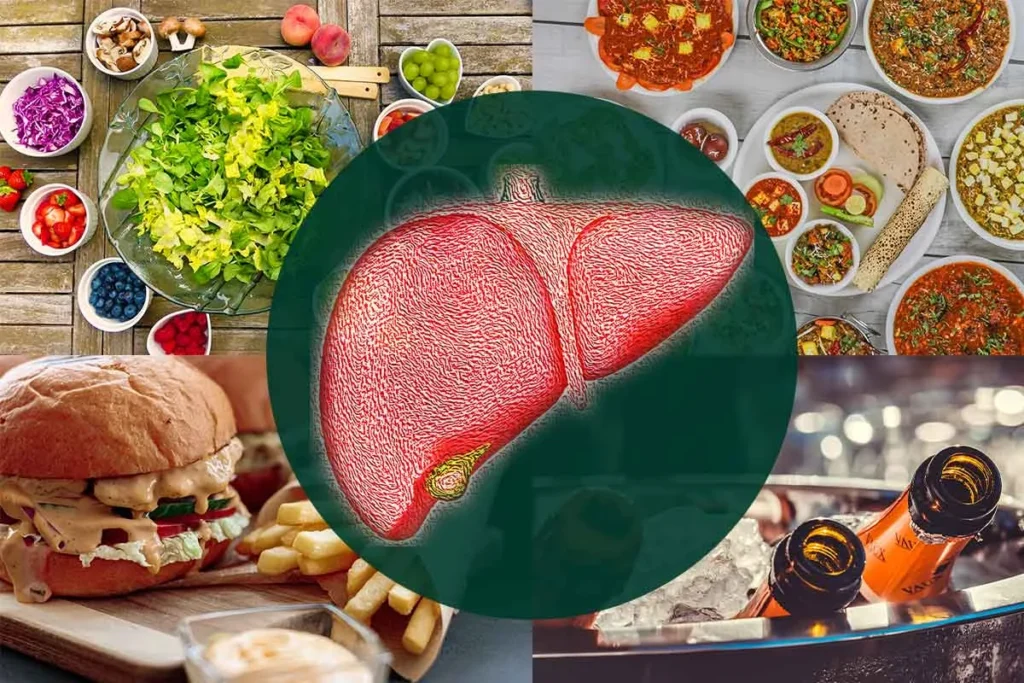Nutrition In Liver Disease
Nutrition in liver disease

If you’re a liver patient, your diet is adjusted to meet your individual needs. Still, here are some general food tips for a healthy or healthier liver:
- What to avoid: Don’t eat foods high in fat, sugar and salt. Stay away from a lot of fried foods including fast food restaurant meals. Raw or undercooked shellfish such as oysters and clams are a definite no-no.
- Talk to your doctor about alcohol and your liver health: Depending on the state of your liver, you should avoid alcohol. If you’re allowed alcohol, limit it to no more than one drink a day if you’re a woman and two drinks a day if you’re a man.
- Eat a balanced diet: Select foods from all food groups: Grains, fruits, vegetables, meat and beans, milk, and oil.
- Eat food with fibre: Fiber helps your liver work at an optimal level. Fruits, vegetables, whole grain bread, rice and cereals can take care of your body’s fibre needs.
- Drink lots of water: It prevents dehydration and it helps your liver to function better.
Dietary changes for liver disease may involve:
- Cutting down the amount of animal protein you eat. This will help limit the buildup of toxic waste products.
- Increasing your intake of carbohydrates to be in proportion with the amount of protein you eat.
- Eat fruits and vegetables and lean protein such as legumes, poultry, and fish. Avoid uncooked shellfish.
- Take vitamins and medicines prescribed by your health care provider for low blood count, nerve problems, or nutritional problems from liver disease.
- Limiting your salt intake. Salt in the diet may worsen fluid buildup and swell in the liver.


